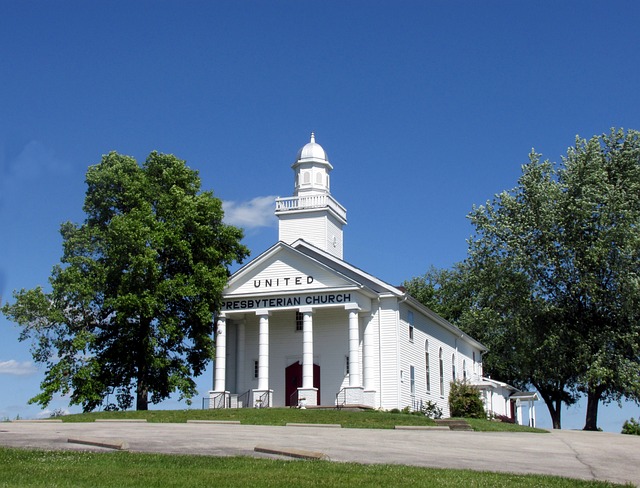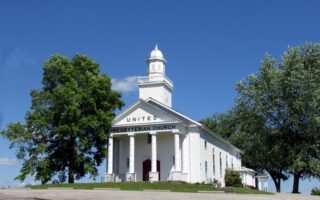Presbyterians are a Christian denomination that holds varying beliefs and practices regarding music within their worship services.
Table of Contents
The Role of Music in Presbyterian Worship
Do Presbyterians believe in music? This is a question that may come to mind when considering the role of music in Presbyterian worship. While it is true that Presbyterian worship services may not be as known for their musical extravagance as some other denominations, music does indeed play a significant role in Presbyterian worship.
Music has always been an integral part of Christian worship, and Presbyterians are no exception. In fact, the Presbyterian Church has a rich history of hymnody and musical expression. From the early days of the Reformation, when John Calvin sought to reform the worship practices of the church, music was seen as a powerful tool for conveying the message of the Gospel.
In Presbyterian worship, music serves several important functions. First and foremost, it is a means of praising and worshiping God. Through hymns and songs, Presbyterians express their love and adoration for their Creator. Music has a unique way of touching the heart and soul, and it allows worshippers to connect with God on a deeper level.
Additionally, music is a means of teaching and proclaiming the Word of God. Many hymns and songs are filled with biblical truths and theological insights. Through the lyrics of these songs, Presbyterians are reminded of the core beliefs of their faith and are encouraged to live out those beliefs in their daily lives. Music has a way of embedding these truths in our minds and hearts, making them more memorable and impactful.
Furthermore, music serves as a unifying force within the Presbyterian community. When the congregation joins together in singing, it creates a sense of unity and fellowship. Regardless of individual differences or backgrounds, music has the power to bring people together in a shared experience of worship. It is a reminder that, as the body of Christ, we are all part of something greater than ourselves.
While music is an important aspect of Presbyterian worship, it is important to note that it is not the central focus. The preaching of the Word and the sacraments hold primary importance in Presbyterian worship services. However, music is seen as a valuable tool that enhances and supports these central elements.
In Presbyterian worship, the choice of music is often guided by theological considerations. Hymns and songs are selected based on their adherence to biblical truth and their ability to convey the message of the Gospel. This means that the lyrics and content of the music are carefully evaluated to ensure that they align with Presbyterian beliefs and values.
In conclusion, Presbyterians do believe in music and recognize its importance in worship. While it may not be the central focus of their worship services, music plays a significant role in praising and worshiping God, teaching and proclaiming the Word, and fostering unity within the Presbyterian community. So, the next time you attend a Presbyterian worship service, take a moment to appreciate the power and beauty of the music that fills the sanctuary. It is a reflection of the deep faith and devotion of the Presbyterian community.
Historical Perspectives on Music in Presbyterian Tradition

Do Presbyterians believe in music? This is a question that has been asked by many people over the years. To understand the role of music in the Presbyterian tradition, it is important to look at the historical perspectives on this topic.
Music has always played a significant role in religious worship. From ancient times, people have used music to express their devotion and praise to God. In the Presbyterian tradition, music has been an integral part of worship services for centuries.
During the Reformation in the 16th century, the use of music in worship became a topic of debate among different Protestant denominations. Some believed that music should be excluded from worship, as they saw it as a distraction from the Word of God. However, others, including John Calvin, the founder of Presbyterianism, believed that music could be a powerful tool for worship and should be embraced.
Calvin saw music as a means to enhance the worship experience and to engage the congregation in a deeper level of spiritual connection. He believed that music could help to convey the message of the Gospel and to stir the emotions of the worshippers. Calvin encouraged the use of psalms and hymns in worship, and he even wrote his own metrical psalter, which became widely used in Presbyterian churches.
Throughout history, Presbyterian churches have continued to value the importance of music in worship. Hymns and psalms have been sung, choirs have been formed, and musical instruments have been played to enhance the worship experience. Music has been seen as a way to express joy, gratitude, and reverence towards God.
In addition to its role in worship, music has also played a significant role in Presbyterian culture and community. Singing together has been a way for congregations to come together and to feel a sense of unity. It has provided a space for people to express their faith and to connect with one another on a deeper level.
Over the years, the style of music in Presbyterian worship has evolved to reflect the changing times. Traditional hymns are still sung, but contemporary worship songs have also been embraced. This has allowed for a greater diversity of musical expressions within the Presbyterian tradition.
Today, music continues to be an important part of Presbyterian worship. It is seen as a way to engage the congregation, to express emotions, and to create a sense of community. Whether it is through the singing of hymns, the playing of instruments, or the participation in a choir, music is valued and cherished by Presbyterians.
So, do Presbyterians believe in music? The answer is a resounding yes. Music has been an integral part of the Presbyterian tradition for centuries. It has been used to enhance worship, to express faith, and to create a sense of community. From the time of John Calvin to the present day, music has played a vital role in the Presbyterian faith.
Exploring the Theological Significance of Music for Presbyterians
Do Presbyterians believe in music? It’s a question that may seem strange to some, but for those who are unfamiliar with the Presbyterian tradition, it’s worth exploring the theological significance of music for this particular denomination. Music has always played a vital role in religious worship, and Presbyterians are no exception to this. In fact, music holds a special place in the hearts of many Presbyterians, as it is seen as a powerful tool for expressing faith and connecting with God.
One of the key beliefs of Presbyterianism is the idea that God is sovereign. This means that God is in control of all things and has a plan for the world. Music, for Presbyterians, is a way to acknowledge and celebrate this sovereignty. Through music, they can express their trust in God’s plan and find comfort in the knowledge that God is in control.
Another important aspect of Presbyterian theology is the belief in the power of community. Presbyterians see themselves as part of a larger body of believers, and music is a way to unite and strengthen this community. Whether it’s singing hymns together during worship or participating in a choir, music brings Presbyterians together and helps them feel connected to one another. It is through music that they can experience a sense of belonging and find support and encouragement from their fellow believers.
Music also has the ability to evoke emotions and stir the soul. For Presbyterians, music is a way to express their deepest feelings and connect with God on a personal level. Whether it’s through joyful hymns of praise or solemn melodies of lament, music allows Presbyterians to pour out their hearts to God and find solace in His presence. It is a form of prayer that transcends words and reaches the depths of the soul.
In addition to its emotional and communal significance, music also has a rich theological meaning for Presbyterians. The lyrics of hymns often contain deep theological truths and serve as a way to teach and reinforce important doctrines. Through music, Presbyterians can learn about God’s love, grace, and redemption. It is a way to engage both the mind and the heart, as they reflect on the lyrics and allow them to shape their understanding of God and their faith.
Furthermore, music is not just limited to the worship service for Presbyterians. It is also an integral part of their daily lives. Many Presbyterians find solace and inspiration in listening to Christian music throughout the week. Whether it’s contemporary Christian songs or classical hymns, music serves as a constant reminder of God’s presence and a source of encouragement and strength.
So, do Presbyterians believe in music? Absolutely. Music is not just a form of entertainment or a way to pass the time for Presbyterians. It is a powerful tool for expressing faith, connecting with God, and strengthening the community of believers. Whether it’s through singing hymns, participating in a choir, or listening to Christian music, music holds a special place in the hearts of Presbyterians. It is a way to worship, learn, and grow in their faith.
Contemporary Practices and Trends in Presbyterian Music
Do Presbyterians believe in music? This is a question that may come to mind when considering the practices and trends in Presbyterian music today. While it is true that Presbyterian worship services may not be as known for their musical extravagance as some other denominations, music does indeed hold a significant place in Presbyterian worship.
In contemporary Presbyterian churches, music plays a vital role in creating a worshipful atmosphere. It serves as a means of expressing praise and adoration to God, as well as a way to engage congregants in the worship experience. Music has the power to touch hearts and souls, and Presbyterians recognize this power and embrace it in their worship services.
One of the most common forms of music in Presbyterian worship is congregational singing. Hymns and psalms are sung by the entire congregation, allowing everyone to participate in the worship experience. This practice reflects the Presbyterian belief in the priesthood of all believers, where every member of the congregation is seen as a participant in worship, rather than a passive observer.
Contemporary trends in Presbyterian music have also seen the inclusion of more modern worship songs. These songs, often accompanied by guitars and drums, provide a more contemporary sound that resonates with younger generations. This blending of traditional hymns and modern worship songs creates a diverse musical experience that appeals to a wide range of worshippers.
In addition to congregational singing, many Presbyterian churches also have choirs or praise teams that lead the congregation in worship. These groups often consist of talented musicians and vocalists who use their gifts to enhance the worship experience. The inclusion of choirs and praise teams adds depth and variety to the music in Presbyterian worship services.
Another trend in Presbyterian music is the use of instrumental music. While the focus is often on vocal music, instrumental pieces can also be found in Presbyterian worship. Organ music, in particular, has a long-standing tradition in Presbyterian churches and is often used to accompany hymns and provide a majestic backdrop to the worship service.
Presbyterians also value the importance of music education and encourage the development of musical talents within their congregations. Many churches offer music programs for children and youth, providing opportunities for them to learn and grow in their musical abilities. This emphasis on music education ensures that future generations of Presbyterians will continue to appreciate and participate in the musical traditions of their faith.
In conclusion, while it may not be the first thing that comes to mind when thinking about Presbyterian worship, music does indeed hold a significant place in contemporary Presbyterian practices. From congregational singing to choirs and praise teams, from traditional hymns to modern worship songs, music plays a vital role in creating a worshipful atmosphere and engaging congregants in the worship experience. Presbyterians believe in the power of music to touch hearts and souls, and they embrace its role in their worship services. So, the next time you find yourself in a Presbyterian worship service, be prepared to join in the music and experience the power of worship through song.
Conclusion
Yes, Presbyterians believe in music as an integral part of their worship and spiritual expression.


